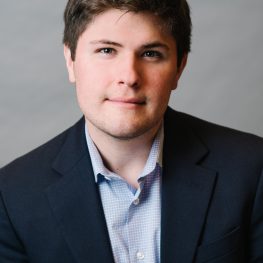Cure Rare Disease, a nonprofit biotechnology research organization working to develop precision medicine for rare diseases, said it will fund research at The Hospital for Sick Children in Toronto, which will seek to develop CRISPR-based genome editing therapies for the rare and fatal neuromuscular Duchenne muscular dystrophy patients.

Photo: Rich Horgan, founder and president of Cure Rare Disease
Last month, Cure Rare Disease said it would provide more than $500,000 in funding to SickKids to build upon existing research to develop a CRISPR/Cas9-based treatment to correct gene duplications that cause DMD by restoring full-length dystrophin, a protein critical to muscle strength and function. The project will test the feasibility of repairing a variety of DMD-causing duplications utilizing cells from four Cure Rare Disease patients.
“Duplications in the genetic code are thought to be the direct cause for almost 10 percent of rare inherited disorders, yet they are incredibly difficult to model and study, which has slowed the development of precision medicine therapies for these patients,” said Zhenya Ivakine, Scientist in the Genetics & Genome Biology program at SickKids and a principal investigator in the project. “This funding and collaboration represent an important step forward in our work to individualize therapies for patients with rare diseases, such as DMD.”
Duchenne muscular dystrophy (DMD) is a rare, fatal neuromuscular genetic disease that occurs in approximately one in every 3,500-5,000 males worldwide. DMD is caused by a change or mutation in the gene that encodes instructions for dystrophin. Symptoms of DMD usually appear in infants and toddlers. Affected children may experience developmental delays such as difficulty in walking, climbing stairs or standing from a sitting position. As the disease progresses, muscle weakness in the lower limbs spreads to the arms, neck and other areas.
Most patients require full-time use of a wheelchair in their early teens, and then progressively lose the ability to independently perform activities of daily living such as using the restroom, bathing and feeding. Eventually, increasing difficulty in breathing due to respiratory muscle dysfunction requires ventilation support, and cardiac dysfunction can lead to heart failure. The condition is universally fatal, and patients usually succumb to the disease in their twenties.
Cure Rare Disease is currently funding an array of projects to develop treatments to correct DMD gene deletions and will dose its first patient with a CRISPR-based treatment in 2022.
“This collaboration is a major milestone in our work to hopefully expand our drug development pipeline and continue building our pioneering model to create and dose customized therapeutics for rare diseases like DMD,” said Rich Horgan, founder and president of Cure Rare Disease.

Stay Connected
Sign up for updates straight to your inbox.
